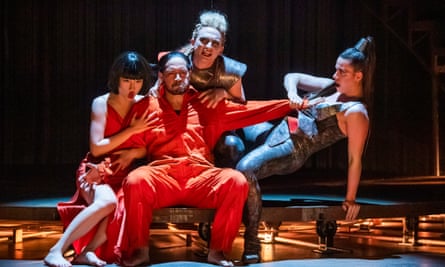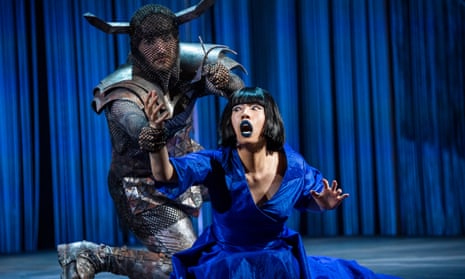Taken into the Royal Opera’s repertory as a vehicle for the company’s Jette Parker Young Artists, Hans Werner Henze’s Phaedra was first performed in Berlin in 2007. It was not, as is sometimes stated, his last opera: there was still the music theatre piece Gisela! to come, but Phaedra does in some ways have a sense of finality about it. Composed in the face of serious illness, it’s a parable of death and renewal, shot through with intimations of mortality and an awareness of the transient beauty of the natural world.
It is often regarded as a problematic work, thanks to Christian Lehnert’s libretto, an unstable amalgam of classical tragedy and James Frazer’s The Golden Bough. The first act broadly follows the narrative of Phaedra and Hippolytus, familiar from Euripides and Racine. In the second, however, Artemis resurrects Hippolytus as the forest god Virbius at Nemi, near Henze’s home in Italy, and the site of the Virbius cult that Frazer analyses in his magnum opus. The sense of verbal overload is inescapable, but the score is a thing of great beauty, sparse yet sensual, ravishingly orchestrated and vocally striking.

Noa Naamat’s production, meanwhile, succeeds in turning it into a cogent piece of music theatre. Clearing away much of the symbolic clutter, she reduces it to a series of fierce confrontations between the protagonists, as Artemis (countertenor Patrick Terry) and Aphrodite (Jacquelyn Stucker) battle for the souls of Filipe Manu’s Hippolytus and Hongni Wu’s Phaedra, while Michael Mofidian’s Minotaurus, embodiment of the beast in man, prowls continuously round them.
It’s finely sung, too. Wu’s voice darkens with passion as she forces her attentions on Manu’s touchingly innocent Hippolytus. Stucker’s insistent dramatic fire contrasts with Terry’s more measured eloquence, and Mofidian reveals a handsome, focused bass when Minotaurus, a silent presence for much of the evening, finally sings in the closing scenes. In the pit, meanwhile, Edmund Whitehead conducts the Southbank Sinfonia with great care and attention to detail. It’s sexy, unsettling stuff, often mesmerising to watch.
At the Linbury theatre, Royal Opera House, London, until 20 May

Comments (…)
Sign in or create your Guardian account to join the discussion